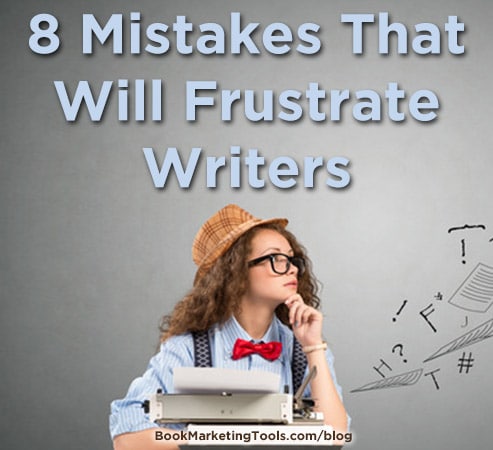Seasoned authors still have editors. And those editors send stuff back to be revised and re-written, because seasoned writers still make mistakes. Amateur writers have to understand that they will make some pretty big blunders, but they will get better with experience and genuine commitment to make some changes. Here are the most typical mistakes that amateur writers make. Some apply only to fiction writers; some apply to both fiction and non-fiction. As you go through this list, see if there are some important takeaways that will help you get better sooner rather than later.
1. Some writers love their own writing too much
A lot of writers have a long history of academic writing and got high grades. They know they are good writers, but they may not realize that their writing skills do not transfer to fiction or non-fiction book writing. They then have trouble accepting criticism.
2. Early writers mis-judge how hard it really is
Writing is hard work. If it were easy, authors would be pumping out books every couple of months. That is not how it works. There are amazing highs and horrible lows; there is writer’s block, and there are times when everything that has been written in a week is trashed. Beginning writers can become horribly frustrated because they have not been prepared for the trials of writing. A book cannot be forced – trying to hurry through means a bad end product.
3. Writers may not know how to begin or end a book
The first line of a book, just like that of an essay, is absolutely critical. It must pull the reader deep inside immediately. And when that reader is engaged, the expectation is that the rest of the book will be just as good as that first sentence. Moreover, the end must do one of two things. Every loose end must be tied up; or there must be something left open for a sequel.
4. Early writers do not do enough research
Most writers understand that they must research the setting in which they place their books, and especially if the book is non-fiction. But even in fiction, there must be credibility of time and place. Beyond that, however, fiction authors need to research their characters as handily as non-fiction writers do. If a character has lost his job, what does that character feel, say, do? How does that character relate to others – his family, his friends, sales clerks? If a writer has not had the experiences that his/her characters are having, then s/he must seek those people out and conduct the research.
5. Writers are not careful about descriptive passages
There is a very fine balance that must be achieved with descriptions. The reader must have enough to get a picture in his/her head but not much more. Writers will either give too little, written too dryly, or they will go overboard until the reader is skimming through to get to the action again. This is where a good editor comes in. Every author, even if self-published needs an editor, and that does not mean Uncle Charlie who was a middle school English teacher.
6. Early writers use third person too much
If a major event is occurring in a novel, there is not a lot of impact if it is described from the third person. It should be described through a character witnessing that event. Then it has reality. Again, these are the things a good editor will point out.
7. Some writers may not pay enough attention to grammar and punctuation
Great writers have grammar problems. Those writers are great because they tell a story that captivates. But they also have proofreaders to polish that story, so that readers are not frustrated.
8. Early writers do not go back and read Hemingway
Modifiers must be used sparingly, and if a writer will read, Old Man and the Sea,” s/he will get the idea. Modifiers are a sign of lazy writing, because they are describing what someone or something looks like, a character’s feelings and emotions. The characters need to show their own emotions and feeling through their words and actions. Modifiers make writing boring and should be dumped whenever possible. Consider these two simple sentences. “She walked slowly toward the house, knowing that she was facing a huge argument,” or, “She put one foot in front of the other, forcing each step, trying to imagine the war that would begin as soon as she reached the house.”
These eight items are not the only mistakes that both early and seasoned writers make. However, if as a beginning writer, you can be mindful of this list as you craft that book that is demanding to be written, you will be well on your way to developing your skill.
Rick Riddle is a successful blogger whose articles aim to help readers with content management, entrepreneurship and self-development. Connect with Rick on Twitter and LinkedIn.

